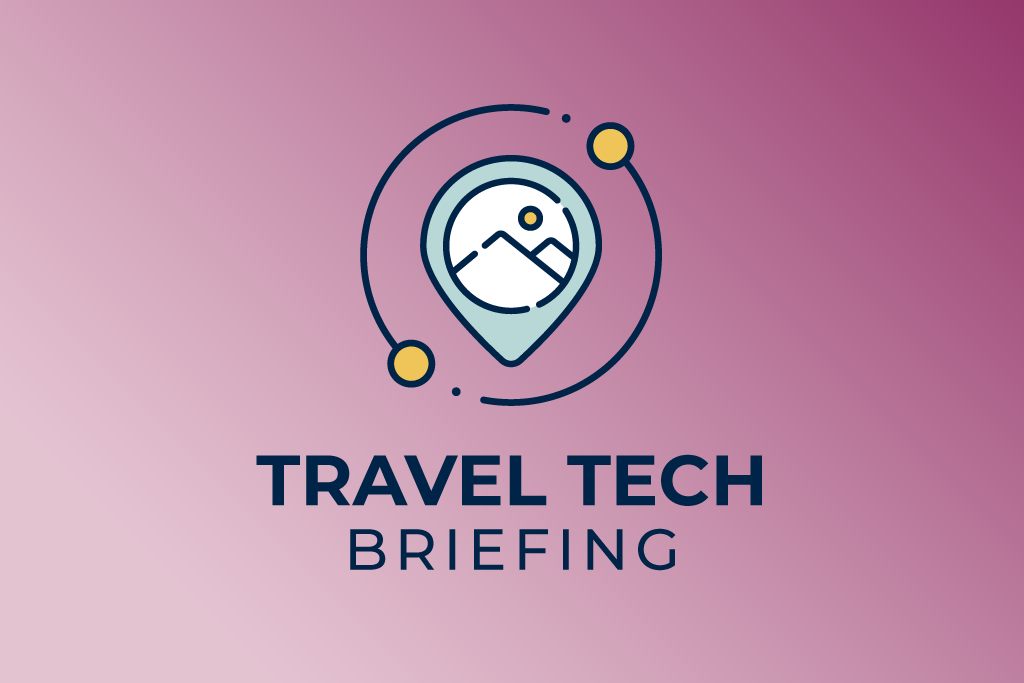Skift Take
The consumer side of travel has recently seen a lot of change in financial technology, or "fintech." Adam Harris, the CEO of travel startup Cloudbeds, is wise to ask why there isn't more fintech for the operational side of travel.

Travel Tech Briefing
Editor’s Note: Exclusive reporting on technology’s impact on the travel industry, delivered every Thursday. The briefing will guide executives as they decide if their companies should “build, buy, or partner” to stay ahead.
I listen to travel tech companies that have boosted their revenue despite the pandemic shock to the travel industry. These vendors can reveal clues about what’s on the minds of travel execs shopping for tech.
- But to be clear: When I sum up a vendor’s views and forecasts, I’m not saying they’re the last word on any topic.
This week, I listened closely to Cloudbeds.
- Cloudbeds, based in San Diego, makes software to help small hotels and alternative accommodation operators set their room rates, market their inventory online, and automate workflows, such as guest check-in.
- The startup grew its revenue in 2020, year-over-year. It said its revenue in the first half of 2021 exceeded its revenue in the first half of 2020.
- But the private company didn’t release specific financial numbers.
- In March 2020, it announced a Series C minority investment of $82 million. That capital enabled the company to avoid laying staff off during the crisis. Since the funding round, it has spent “millions” of dollars on research and development and adding salespeople and client service staff. It has roughly 600 employees now, having added about 120 roles during the pandemic.
I spoke with co-founder and CEO Adam Harris.
- The key concept I heard was that: “handling payments and cash flow are major pain points for hospitality operators.”
Some backstory, first. Today’s Briefing is about the tech vendors that serve smaller hospitality operators.
- The current king of property management software for full-service hotels is Oracle Hospitality, which I discussed two weeks ago.
- But as you move down the chain scale from full-service to independents and alternative accommodations, Oracle Hospitality faces more intense competition.
- Rivals include Cloudbeds, Guesty, Protel, and Yanolja (backed by Softbank and Booking Holdings). Plus, there are dozens of other systems that aim to help limited-service hotels, bed-and-breakfasts, and small operators of vacation rentals or campsites. These vendors all claim they can serve clients of any size, of course. But as of today, they’re mostly serving “the long tail.”
- “Our average property has 40 rooms,” said Harris, the CEO of Cloudbeds. “We serve a lot of alternative accommodation, a segment that’s done relatively well during the pandemic.” Think vacation rentals, hostels, and campsites.
- But, of course, Harris wants to serve clients as large as Accor. “Our goal is, by the end of 2026, to be able to power any property in the world, irrespective of complexity, geography, or concept,” Harris said.
Many smaller hospitality companies could use some fintech help, Harris observed.
- The travel sector has recently seen a lot of financial technology, or fintech, innovation on the consumer side.
- Companies such as Uplift and Fly Now Pay Later provide “buy now pay later” credit services and Hopper offers price insurance and other new financial products. Meanwhile, companies such as AIG Travel Guard, Cover Genius, and Pattern are rolling out new types of trip insurance, such as cancellation policies for ski trips in case of no snow.
- But where’s the fintech on the enterprise side of travel?
- That’s a good question I hadn’t heard asked before.
Hotel and vacation rental property managers need “fintech” to solve their payments-related and cash-flow-related challenges.
- Payments-related financial risk is a huge problem for smaller hospitality operators.
- For example, “chargebacks” hurt many hoteliers. Chargebacks are what happens when consumers ask their credit card company to dispute transactions. Sometimes these requests are fraudulent. In all cases, resolutions take time, with many manual steps.
- Where’s the modern and creative fintech, perhaps from a startup rather than a traditional bank or insurer, to help hospitality operators manage their chargeback risk?
Managing cash flow has always been an issue for small businesses. But the pandemic-related crisis and the acceleration of online selling have added complications and raised the stakes.
- The amount of “floating money” is hard to track for small hospitality operators.
- Any given property may be paid in full for some rooms, only partially paid for some inventory, and not yet paid for other services rendered.
- Separately, a hotelier may owe money, such as processing fees to credit card companies.
- Where’s the fintech to help operators of hotels and vacation rentals “cover the float”? Harris asked.
Cloudbeds and other tech companies are at just the tip of the iceberg on what they need to do to help hospitality operators.
- Areas for improvement include the handling commissions for third-party resellers and handling currency conversions for international transactions as quickly and seamlessly as possible, Harris said.
Property management systems are well-positioned to help with innovation.
- Property management systems (PMSs) help hospitality operators process or otherwise handle hundreds of millions of dollars of gross reservation volume a week.
- But older systems are often clunky, and operators have to take manual steps to fill gaps when exceptional circumstances arise.
- “Hoteliers need computers to automate as much as possible to save time,” Harris said. “Payments ought to be handled through programmatic rules to cover every circumstance without needing manual help from a hotel employee.”
- “So whether a reservation came from Expedia or Booking.com, or it came from the hotel’s direct site and required a deposit, or whether the hotel can’t process the money until the last minute because of the cancellation policy for the rate offer, a system ought to handle it automatically,” Harris said.
One example of how Cloudbeds approaches payment-related problems is through its use of “tokenization.”
- Tokenizing essentially means hiding sensitive cardholder data by disguising it with a new set of numbers called a “token.”
- Many companies such as Stripe already do this for e-commerce, but it’s a relatively new practice in long-tail hospitality tech.
- Tokenizing enables Cloudbeds to securely share the information with, say, a third-party point-of-service payment device that the hotel may use to accept, say, a credit card from a guest at check-in.
- Cloudbeds puts a tokenized card into a data vault and associates it with all the relevant rules about how and when to process a payment.
- To help support the effort, the startup has built a brand new data warehouse, run on AWS (Amazon Web Services).
The quality of data connections and data storage will help differentiate hotel tech vendors.
- It’s easy for the typical vendor to connect to the typical property management system via an API, or application programming interface. But some APIs and some API integrations are deeper than others, meaning they are more robust at accessing all the pertinent information to complete any given task in real-time.
- Harris said the quality of API integrations and data warehousing will help some vendors break ahead from today’s crowded pack of rivals within a couple of years.
IN BRIEF
Travel Tech Companies Are Hiring
A good way to see what vendors are investing in is to track their job postings. Mauricio Prieto, the author of a biweekly newsletter on the sector, is one source. [Travel Tech Essentialist Job Board]
Sabre Renews Distribution Pact With Ethiopian Airlines In Multi-Year Deal Reportedly Worth $110 Million
It was upbeat news for a travel tech company that saw its stock price bounce all over in the past month. [Buisweek]
The Daily Newsletter
Our daily coverage of the global travel industry. Written by editors and analysts from across Skift’s brands.
Have a confidential tip for Skift? Get in touch
Tags: Skift Pro Columns, technology, travel tech, Travel Tech Briefing, travel technology
